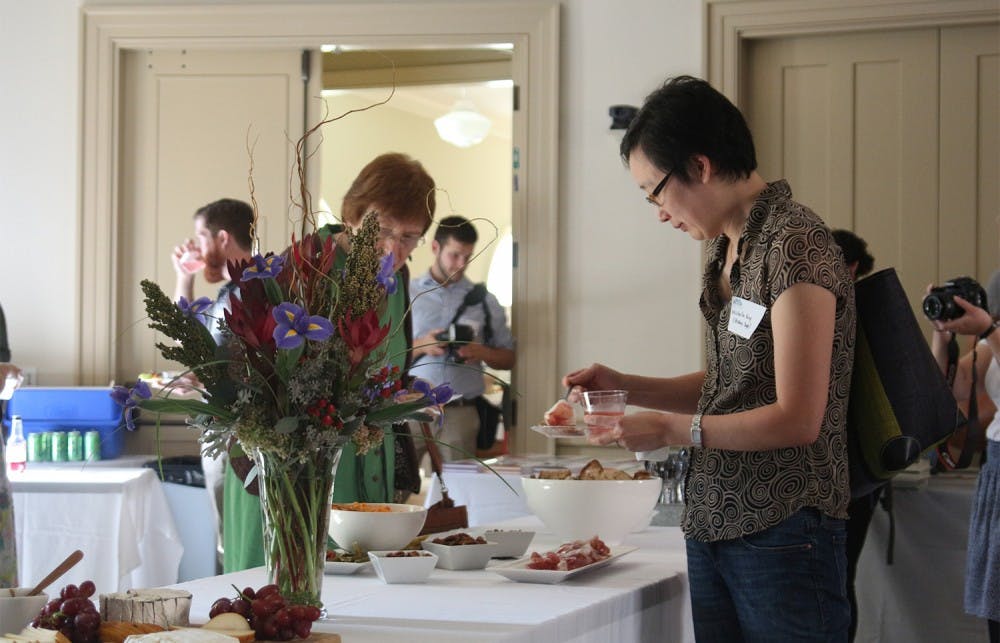“Pumpkin spice flavoring has been associated with female whiteness,” Engelhardt said. “... People have linked it with ‘basic’ girls who wear yoga pants and Ugg boots.”
Engelhardt said her research revolves around the perception of pumpkins as a social symbol, stemming from subjects like pumpkin carving and the Science Channel’s TV show “Punkin Chunkin”.
“The whiteness of people and the whiteness of the pumpkin go hand-in-hand,” she said. “My belief is that the Institute for the Arts and Humanities is a place where we can have these difficult conversations.”
Located in the University Room of Hyde Hall, the Carolina Tasting Salon was the kickoff event for “Food and the Humanities,” presented by the Institute for the Arts and Humanities.
The event reflected the University-wide theme “Food for All: Local and Global Perspectives.” Introduced this year, the theme offers a platform for faculty, students and members of the community to examine food and food studies on a campus-wide basis, theme Co-Chairwoman Marcie Cohen Ferris said.
“The food theme highlights the engaged scholarship across the University,” Ferris said. “It spotlights the research that is already being done.”
Throughout the two-hour event, five professors shared their research on food studies with an audience comprised mainly of UNC faculty.
American Studies professor Bernie Herman said he works to preserve foods that are becoming scarce and to increase people’s awareness through community gatherings. His projects include a private oyster reservation bed, oyster tastings in communities along the coast and a portable solar-powered drying house for figs.



